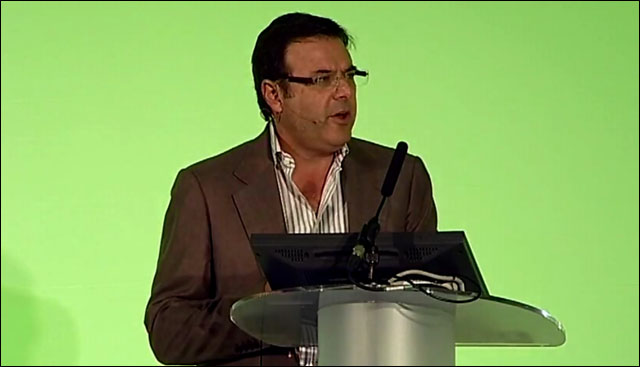The long-time chief executive of troubled e-health giant iSOFT, Gary Cohen, has resigned without a statement and is refusing to take calls from the press, in the face of disastrous annual results over the past year that have seen revenues shrink.
Cohen’s resignation was revealed today as part of the company’s annual financial results for the year to 30 June, in which it revealed revenues were down 20 percent to $431 million over the previous year, and earnings before interest, depreciation and taxation down 77 percent to $30 million. iSOFT has commenced an in-depth review into its operations as a result.
“As part of the review, iSOFT chief executive officer Gary Cohen has agreed to step aside as CEO to focus on assisting the board in the evaluation of strategic options for the company,” a statement issued by the company said today.
Subsequent to the statement, a company spokesperson refused to make Cohen available for comment — or his deputy, chief operating officer Andrea Fiumicelli, who will take his place temporarily while a permanent replacement is found.
A call to Cohen’s personal mobile rang out.
However, the executive won’t be far from iSOFT’s heart, despite his move to step down. Cohen will remain an executive director at iSOFT and has agreed to remain on with the company to assist with its review and ongoing strategic development.
“His experience and knowledge of the specialised sector internationally will be invaluable as we begin the search for a new chief executive who will drive the company forward in this next phase of its evolution,” said iSOFT chairman Robert Moran.
The finances
At the heart of iSOFT’s financial problems are several factors. Firstly, as the results briefing statement makes clear, currency problems are plaguing the e-health giant.
In the past financial year, for example, 73 percent of iSOFT’s revenues were generated in pounds and Euro, with the conversion to Australian dollars leaving the company worse off due to an up to 25 percent appreciation of Australia’s currency in that time at its peak.
“iSOFT suffered an adverse impact on its reported revenue of around $109 million against the prior year,” the company’s statement said.
However, iSOFT also suffered a real-world decline in revenue (when measured on what the company calls a “constant currency basis”) of around $30 million — which it said was mostly attributable to delays in the implementation of the UK National Health Service’s National Programme for IT flagship e-health project.
The NHS contract was one of the reasons that then-IBA Health bought fellow e-health giant iSOFT several years ago, rebranding since under the iSOFT moniker. But the massive project has proven to be a millstone around the company’s neck at various stages.
iSOFT is also suffering further problems.
“As a result of the more subdued economic environment in iSOFT’s markets, the company has reduced its internal projections for growth in Central Europe, [the] Middle East and Africa, South East Asia and Australia,” the statement said.
To rectify its problems iSOFT has already targeted operational cost savings of $50 million by the end of June 2011 — with staff cuts planned. It will streamline its product portfolio, reorient business development and research and development, restructure its debt facilities and is considering asset disposals and new board appointments.
“Notwithstanding these discussions and the strategic review, the core business of the company remains healthy,” iSOFT’s statement said today.
Image credit: Delimiter screenshot of iSOFT promotional video, believed to be covered under fair use

